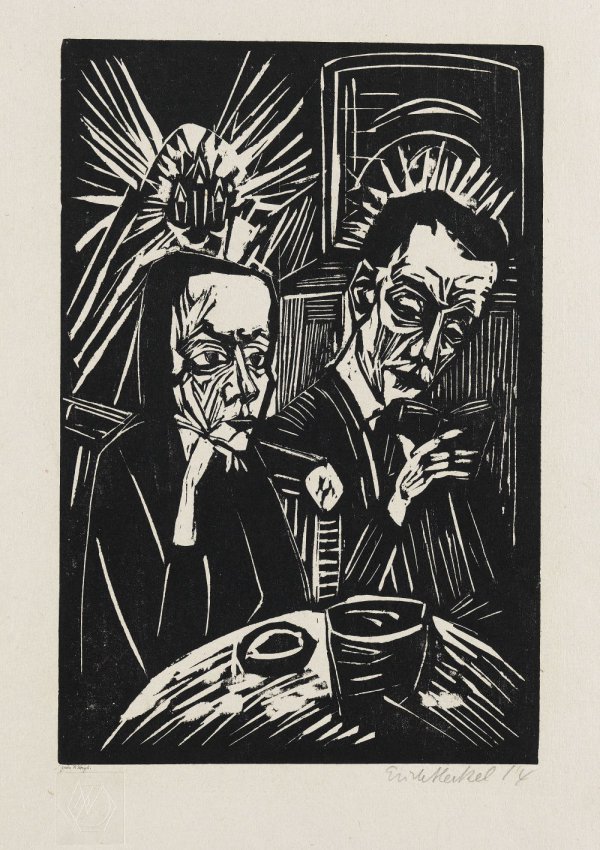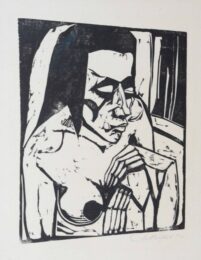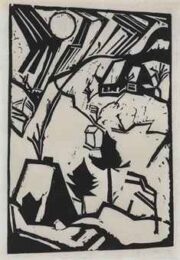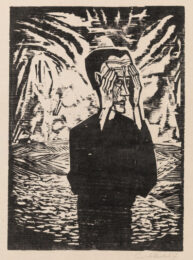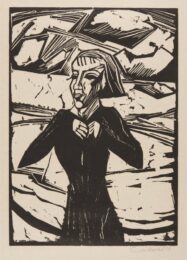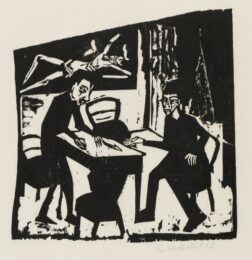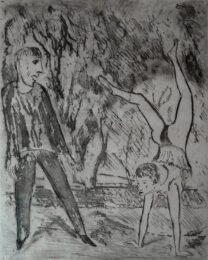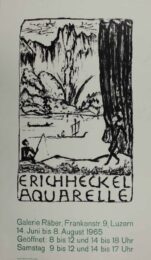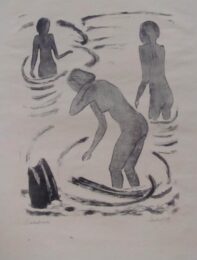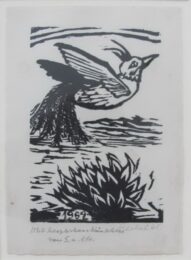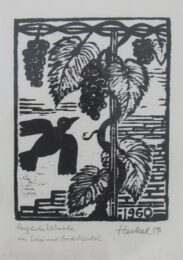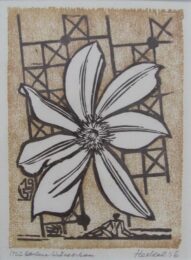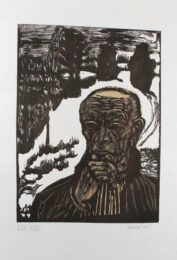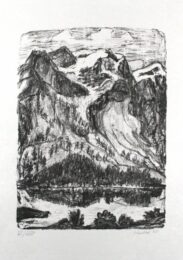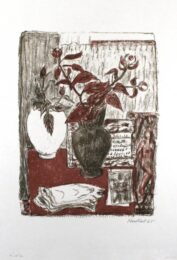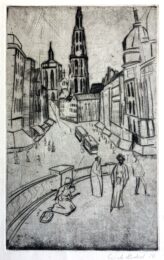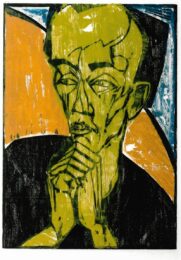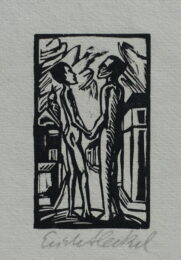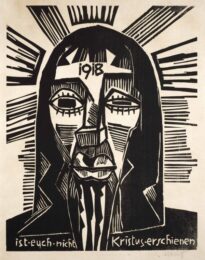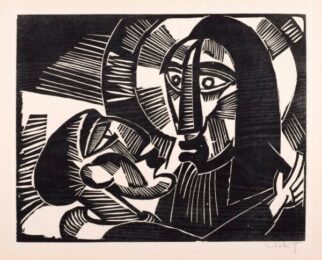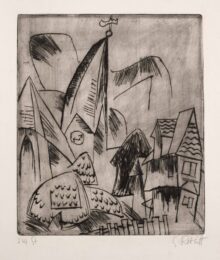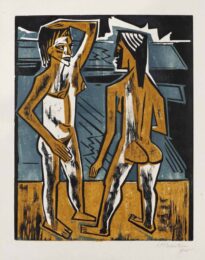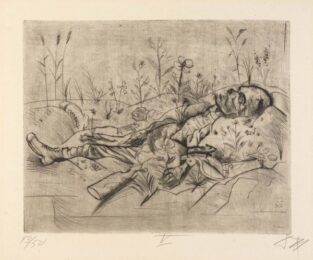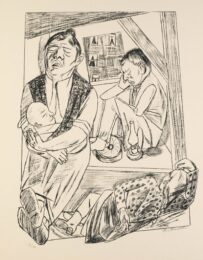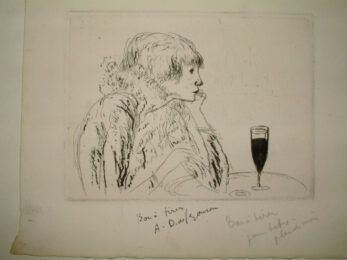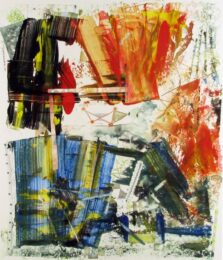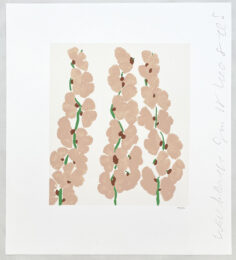Details — Click to read
Heckel had a strong interest in literature, which strengthened further when he moved to Berlin. The subject of reading aloud in particular was important in his work, as he enjoyed this activity. The reader in this work is his friend Walter Kaesbach, and the listener is Heckel’s future wife, Siddi.
Walter Kaesbach was an academic, philosopher and art critic, who following his friendship with Karl Ernst Osthaus in 1904 became acquainted with a number of the leading Expressionist artists. Kaesbach was instrumental in the establishment of a collection of Modern Art at the National Gallery in Berlin and gave a part of his own collection in 1922 to the Museum in Mönchengladbach with the result that it became one of the best public collections of Expressionist art in the Weimar Republic.
Kaesbach held regular reading evenings in his apartment in Berlin in the last two years before the outbreak of the First World War.
There is a related painting in the Stiftung Moritzburg Halle (Hüneke 1914- 24, also titled Unterhaltung or Gesellschaft), and a watercolour in the Brücke Museum in Berlin. These works were presumably undertaken just before he went off to serve in the war. The painting also depicts Heckel himself seated, viewed from behind, and the book which Kaesbach is reading is hidden from view. The scene there is illuminated by a single candle. In the woodcut Heckel creates a more focused subject by concentrating on the two figures only and he intensifies the image by moving light behind Siddi, placing three candles on the wall and creating a halo-like image around their heads.
Exhibited as ‘Unterhaltung’ (Conversation), this print was one of thirteen works by Heckel displayed as degenerate art in the Nazi ‘Entartete Kunst’ exhibition.
The publisher Verlag der Dichtung developed from the journal Die Dichtung within the larger publishing house Gustav Kiepenheuer Verlag – famous for its issue Das Kunstblatt and for its left wing associations. Kiepenhauer was to publish Bertold Brecht amongst others and was greatly restricted after the change in government in 1933.
There is an impression of this woodcut in the British Museum, London.

